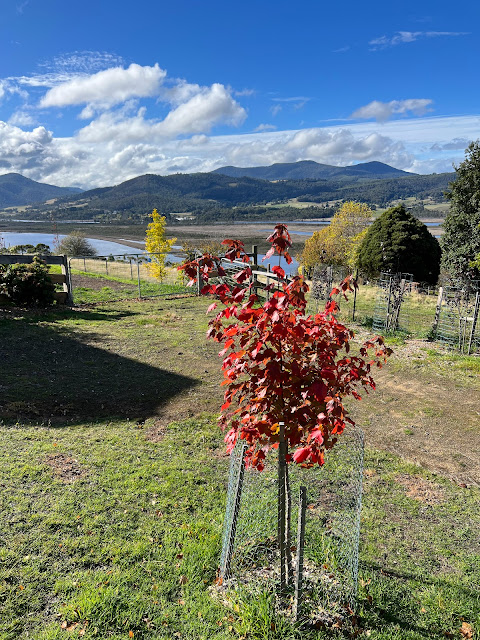A rock and a hard place ...
I have now been home alone on the farm for a week and half while Cath is visiting the UK, and the boundaries of my sanity are being severely stretched. Luckily. I have had the companionship of a large number of rocks that have acted as an effective defence against the twin evils of laxity and turpitude. These rocks were gathered into a massive pile in our top paddock when our fence lines were cleared and have been an eyesore ever since.
Anyway, this week I took to heart the clarion call of Geoff Chaucer as he introduces Sir Ulrich von Lichtenstein in the movie A Knights Tale:
“Yes, behold, the rock, the hard place, like a wind from Gelderland he sweeps by, blown far from his homeland in search of glory and honour, we walk in the garden of his turpulence!”
I had to look up “turpulence” and found no such word in any respectable dictionary. I did, however, find an entry in the Urban Dictionary where, apparently, it means a powerful persona or presence. Okay, so perhaps turpulence is overstating things a little but in any event, the last few days have found me mounted on the trusty 46 horse-power Kubota tractor doing my usual thing with rocks – moving them from one hard place to another.
The first project was to build a small rock wall in the area between the water tanks and the back of the shed. There is a path up along the fence line to the olive grove and the chicken coop that gets a fair amount of foot traffic. This path is adjacent to a bank that could possibly collapse if not reinforced. Access to the build point was impossible for the tractor, so the only difficult bit was carrying the bigger rocks in by hand. The end result is functional (I don't think the bank will be subsiding anywhere soon) but did not stir my artistic soul. Furthermore, although there are a large number of rocks in this wall, the pile that remained in the top paddock looked largely untouched, a graphic illustration of the sheer volume of rocks on our property.
So in Quixotic mood I set off to find another windmill to tilt at. This time a bare slope at the edge of our nascent veggie patch caught my eye. It was a bit of an eyesore, having been created during the process of increasing the area available for cultivation. I started by dropping rocks randomly on the slope and tried to organise them into a feature retaining wall. I then sourced a large amount of horse manure and backfilled behind the rocks to create a new garden bed. The final step was to cover everything with a thick layer of wattle mulch, which, in combination with the manure, makes for a very fertile mixture for planting. The result is quite pleasing and the pile of rocks in the paddock has now completely disappeared.
Elsewhere, there is increased evidence of the encroaching autumn. Our apple harvest has now come to an end. The last of the apples were juiced and are now busy turning into apple cider vinegar. Next year when the trees are a little more established I am hopeful that we will be able to turn our attention to apple cider. Some of the leaves on our trees have finally started to turn. Particularly striking is the red maple (Acer rubrum). It is going to be a real stunner when it gets a little bigger.









Comments
Post a Comment